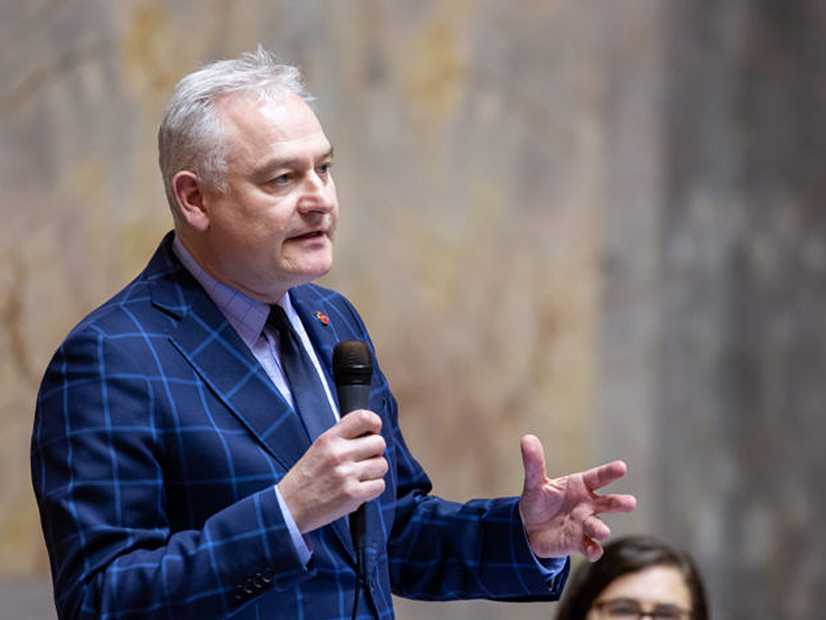A Washington state senator wants to create a “climate resiliency fee” on global financial institutions in the state that fund fossil fuel projects.
Sen. Reuven Carlyle (D), chairman of the Senate Environment, Energy and Technology Committee, announced his intention to introduce such a bill in a press release Monday. The bill has not yet been pre-filed for the Washington legislature’s 2022 session, which begins Jan. 10.
Carlyle’s press release said a state report estimates that Washington taxpayers spent more than $1.2 billion over the 2019-2021 biennium on climate resiliency costs “from forest fires to floods, ocean acidification to heat domes.”
Carlyle is calling for adding a surcharge to a financial institution’s business and occupation (B&O) tax, the state’s tax on a firm’s gross income. The press release did not address the size of the B&O surcharge, nor specify which global financial institutions operate in Washington.
The senator expects the surcharge to raise $80 million to $100 million annually for climate resiliency measures, such as creating public cooling centers, relocating infrastructure at risk from floods and sea level rise, and helping farmers and communities obtain critical water supplies during more frequent and severe droughts.
An analysis by Bloomberg Business of the world’s largest banks found that they invested more than $3.6 trillion combined into the fossil fuel industry in the five years immediately after the Paris Climate Agreement was signed, the press release said.
“One of the most profound lessons from the UN Climate Summit conference was that global banks have financed almost three times more fossil fuel than clean energy projects since the Paris Agreement in 2016. At the same time, these same banks have made commitments to design net zero portfolio investments by 2050. This bill is simply asking those funding climate change to pay a modest fee toward the cost that Washington taxpayers are currently spending on climate resiliency,” Carlyle said.
The press release said global banks’ investments in fossil fuels increased between 2016 and 2021, despite those institutions’ commitment to meet carbon neutrality by 2050.
The bill would reduce the surcharge as the affected institution decrease its investment in fossil fuels — eventually reaching zero when a bank’s investments in fossil fuel projects reach 5% or less of its 2022 level.



